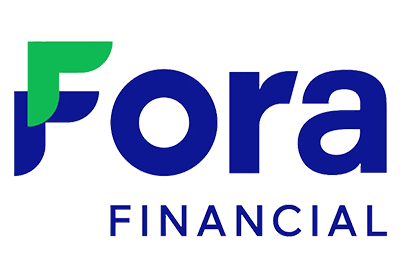Tracking business expenses is one of the most important responsibilities for small business owners. Without a system in place, it’s easy to lose track of spending, miss valuable deductions, or face tax penalties. A strong expense tracking process provides clarity, not to mention, it keeps your business finances organized, which helps you make better decisions about the direction of your business.
This guide explains why expense tracking matters, how it supports your business, the challenges you may face, common expenses to track, and practical steps to maintain accurate records.
How Expense Tracking Supports Your Small Business
Tracking expenses isn’t just about recordkeeping—it directly supports the health and success of your business. When you manage your spending effectively, you gain:
-
Financial clarity: You need a clear understanding of exactly where your money goes so you can make the best informed decisions possible.
-
Stronger budgeting: Create realistic budgets based on accurate spending data.
-
Tax advantages: Organize your records for deductions and simplify tax filing.
-
Better planning: Forecast future costs and prepare for growth opportunities.
-
Error prevention: Catch mistakes early and avoid problems like overspending or missed payments.
With a clear view of your business’s finances, you can make confident choices that support your long-term goals.
Why Tracking Business Expenses Matters
Maintaining accurate and detailed business expense records is essential for several reasons. It can help you understand your spending patterns, allows you to see ways to save money, and enables you to stay compliant with tax rules and regulations. When you learn how to keep track of business expenses better, you can make better decisions about where to cut costs, how to invest in growth, and how to protect your bottom line.
Proper expense tracking is also a requirement for tax reporting. The IRS expects businesses to maintain accurate records, and failing to do so could result in penalties, audits, or missed deductions. By staying organized, you make tax season less stressful and ensure you’re maximizing your tax savings.
Common Challenges in Tracking Expenses for Small Businesses
Knowing how to track expenses for small business owners is one thing, but understanding the details and following through is another. Furthermore, we all know tracking expenses is important, but it’s not always easy to stay on top of it. Many small business owners face challenges, such as:
-
Forgetting to record expenses: Busy schedules can lead to lost receipts or delayed entries.
-
Mixing personal and business finances: Without separation, it’s hard to track business-specific spending accurately.
-
Using the wrong tools: A system that’s too complex or not suited to your needs can cause confusion and errors.
-
Falling behind on updates: Waiting too long to log expenses increases the risk of mistakes.
-
Staying organized for tax season: Without a consistent system, tax preparation can become overwhelming.
Recognizing these challenges helps you create a system that works for your business and avoids common mistakes while you’re learning how to keep track of business expenses in ways that make sense for your industry.
Common Business Expenses
Every business has unique spending needs, but certain categories are common across most industries. Knowing these common expenses makes it easier to stay organized and ensure you’re capturing all eligible costs.
Common business expenses include:
-
Rent or mortgage for office space.
-
Utilities like electricity, water, and the internet.
-
Office supplies like copy paper, pens, phones, or computers.
-
Employee wages, benefits, and payroll taxes.
-
Marketing and advertising costs.
-
Professional services, such as legal and accounting fees.
-
Travel expenses for business trips.
-
Insurance premiums for business protection.
-
Maintenance and repairs for equipment or property.
-
Software subscriptions and technology tools.
When you’re diligent about figuring out how to keep track of business expenses, these categories will help you create a complete picture of your spending and make tax season easier to manage.
Setting Up an Expense Tracking System
The best way to keep track of business expenses is to first set up a solid system that works for you and your team. But how do you do that? Here is a breakdown of the process of building an expense tracking system so you can easily set it up and maintain it over time.
Separate Business and Personal Finances
Start by opening a dedicated business bank account and credit card. Keeping your personal and business finances separate simplifies expense tracking, prevents confusion, and protects your business in case of an audit.
Choose the Right Tracking Method
Decide how you want to track your expenses. You can use a simple spreadsheet, accounting software, or a mobile app designed for small business owners. Choose a system that matches your business size, transaction volume, and comfort level with technology.
Create Clear Expense Categories
Organizing your expenses into categories helps you see where your money is going. Common categories include rent, utilities, office supplies, payroll costs, marketing, and travel. Grouping expenses makes budgeting and financial reporting much easier.
Save Receipts and Documentation
How do you keep track of business expenses with so many receipts going in and out of your offices? It might seem tedious, but keeping copies of all receipts, invoices, and bills is critical. You can store them digitally using cloud storage or apps that scan and organize documents, or you can use physical folders sorted by date and category. Proper documentation is critical for accurate tax filing and audit protection.
Record Expenses Regularly
Make the process of keeping track of business expenses a routine task. Update your records daily, weekly, or monthly—whichever schedule works best for you. Staying consistent helps prevent errors, saves time, and ensures your financial data stays accurate and current.
Using Tools to Streamline Expense Management
Technology can make expense tracking much easier. Accounting software tools allow you to link your bank accounts, automatically categorize transactions, and generate financial reports. Many of these tools also include mobile apps, so you can scan receipts and track expenses on the go.
If you’re wondering how to keep track of business expenses, spreadsheet ledgers, apps, and a myriad of other tools can be utilized. For instance, a Google spreadsheet might be ideal for a smaller business, whereas a scalable and more complex accounting software is a better option for bigger organizations. The important thing is to choose a system that works for your business and use it consistently.
Best Practices for Keeping Track of Business Expenses
Good habits are key to successful expense tracking. Here are some best practices to follow as you learn how to keep track of expenses for business:
-
Review expenses regularly: Schedule weekly or monthly reviews to catch errors and ensure accuracy.
-
Reconcile accounts: Match your recorded expenses against your bank statements to confirm accuracy.
-
Back up records: Keep both digital and physical copies of important documents to protect against loss.
-
Stay organized for tax time: Categorize expenses and store receipts properly to simplify tax preparation.
-
Be consistent: Expense tracking is a habit that requires discipline and regular attention.
Final Thoughts on How to Keep Track of Small Business Expenses
Figuring out the right way to keep track of business expenses may seem like a small task, but it has a big impact. A strong system gives you the clarity, control, and confidence to make smart financial choices. By staying organized, using the right tools, and following good habits, you’ll save money, reduce stress, and set your business up for long-term success.




